Related Content
Content
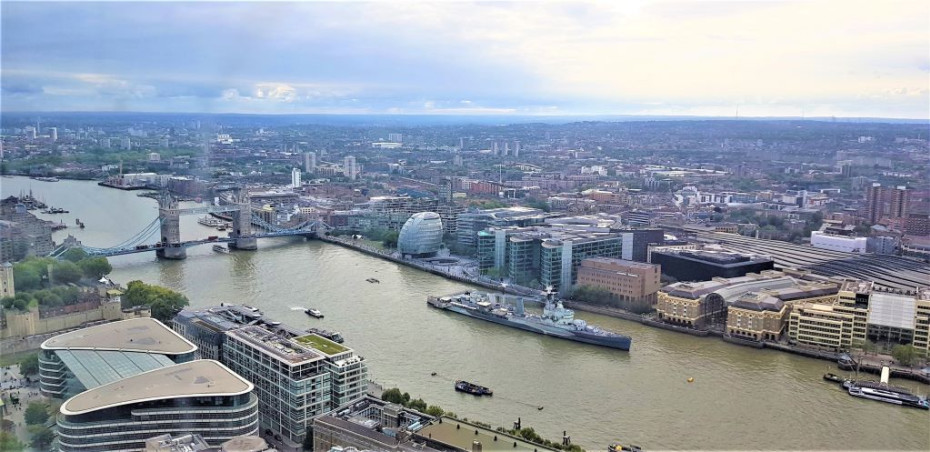
Share
A clutch of tourist destinations are located in the London Bridge area including Borough Market (best experienced on a weekend), The Shard and HMS Belfast the south side access to Tower Bridge, plus the attractions in the adjacent Bermondsey Street area such as the Fashion and Textile Museum and The White Cube Gallery, plus on weekends, The Ropewalk.
They are all within a 10 minute walk of London Bridge station
to the Tower Of London
The easiest option for accessing the Tower Of London from London Bridge is to walk, as it can be reached in around 15 – 25 mins on foot.
The scenic route is:
- Use the exit from the station on Tooley Street,
- go ahead to the footpath which is along the south bank of the river,
- cross over Tower Bridge.
- use the stairs on the other side of the bridge to access the path on the north bank of the river,
- walk in front of the tower to the ticket booths on the far side.
By public transport to the other tourist destinations from London Bridge
You will be taking public transport on to all other popular tourist destinations, when arriving at London Bridge by train.
Hence using my insights from being a Londoner, who frequently has to plan trips around the city centre for someone who prefers to avoid using stairs, to come up with this guide to accessing London’s most popular tourist attractions from London Bridge station.
The focus is on what’s easiest, so where relevant alternative step-free routes have been included; though comparatively few Underground stations in central London have step-free access by lift (elevator) between the trains and the streets.
London Bridge station is located on the south-eastern corner of central London, but the Southeastern and Thameslink trains continue beyond London Bridge to call at other mainline stations closer to the city centre.
So taking these trains services can be a better option than taking the Underground, because they connect to different areas of the city than the Jubilee and Northern Lines, which are the two Underground lines, which serve London Bridge; particularly as it takes around 3 - 5 minutes to reach the Underground trains when stepping off a train at London Bridge.
to the British Museum
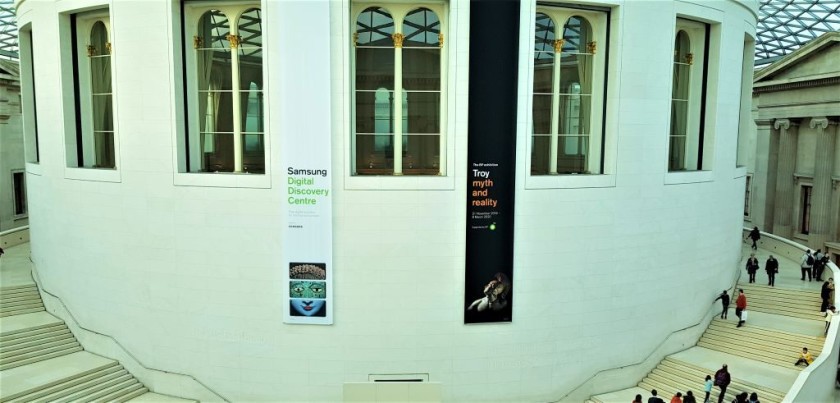
The easiest public transport option for travelling to The British Museum from London Bridge station is to take any Thameslink train from platform 5 to Farringdon and then connect there for a westbound Elizabeth line train for a one-station hop to Tottenham Court Road.
to The Natural History Museum, The Science Museum and The V&A Museum
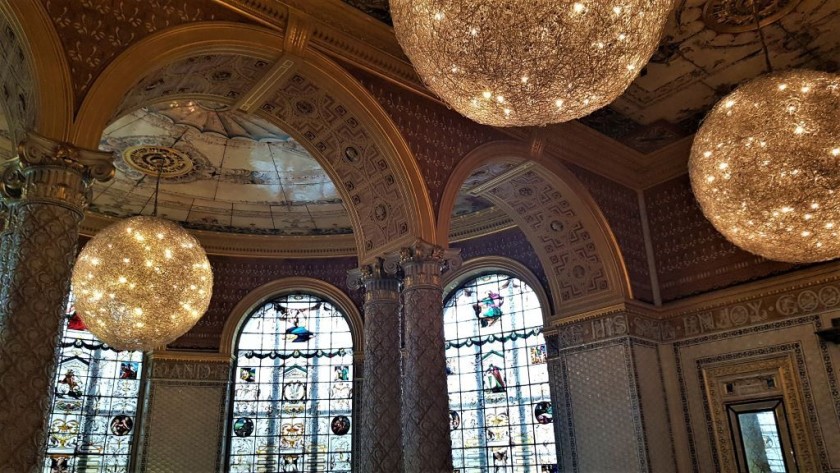
The Natural History Museum and The Science Museum and The Victoria and Albert Museum are all located on the aptly named Exhibition Road in South Kensington.
These museums are a five minute walk north of South Kensington underground station, through a subway which leads off from the ticket hall.
South Kensington station is on the opposite side of central London to London Bridge, so the easiest option for making the transfer is take the northbound Jubilee line to Westminster and connect there for a westbound Circle or District line train to South Kensington.
Though if your train is heading to Charing Cross, leave it at that station and use the Villiers Street exit on the left of the concourse to access Embankment station, taking any westbound Circle or District line train from there.
However, many stations which have trains to London Bridge also have trains to Victoria station and from there it's only a two station hop to South Kensington on any westbound Circle or District line train.
When a direct train to Victoria isn't available it's often possible to make a transfer into a train which will be heading there, at a swathe of stations including Ashford International, Bromley South, East Croydon and Gatwick Airport.
to Trafalgar Square
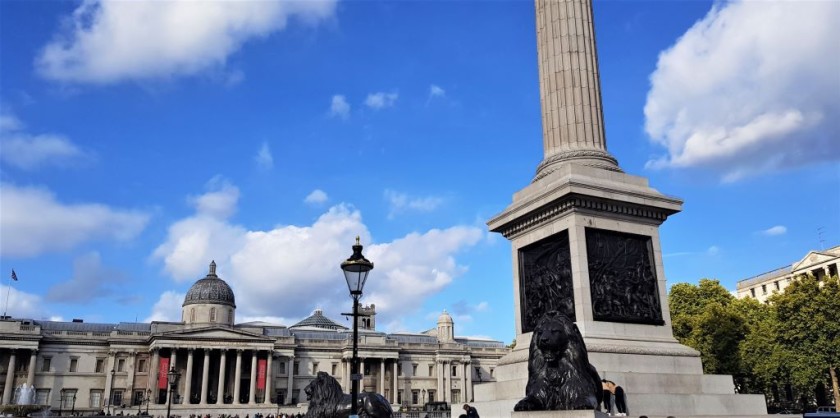
Trafalgar Square is the location of The National Gallery and the separate National Portrait Gallery, plus Horse Guard’s Parade and The Churchill War Rooms, which is just off The Mall, so all of these attractions are all within a few minutes walk from Charing Cross station.
So if your train to London Bridge won't be terminating there you can make the simple connection in London Bridge station, take any train from platforms 8 or 9 on to Charing Cross.
to the South Bank
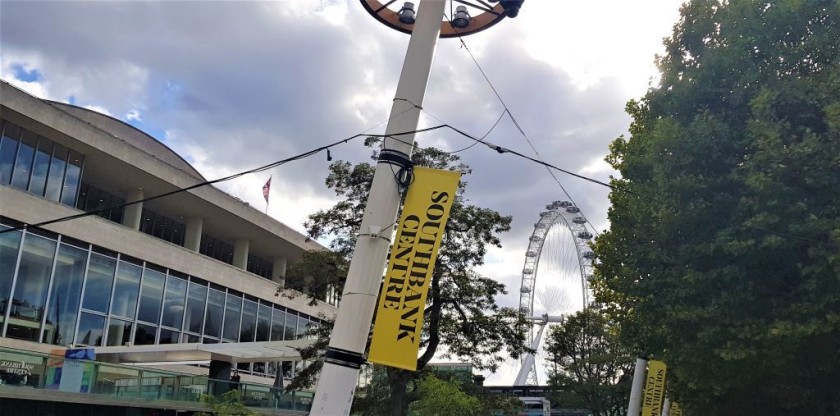
A clutch of tourist destinations are located on the south bank of the River Thames between Waterloo and Westminster Bridges.
They include The London Eye and The Sea Life London Aquarium and The London Dungeon and The South Bank Centre arts complex including The Hayward Gallery and The Festival Hall.
If your train to London Bridge won't be calling at Waterloo East station, head to platform 8 and 9 and board any train that will be heading to Charing Cross.
to The Zoo and Madame Tussauds
Madame Tussauds is adjacent to Baker Street Underground station, it is on the next block, but taking the bus is the easiest means of reaching The Zoo.
The only bus route which stops right by London Zoo’s entrance is the 274
and at Baker Street it departs from bus stop C, take the bus heading to Angel, Islington.
Any northbound Jubilee line train from London Bridge will be direct to Baker Street.
Though an alternative option for accessing London Zoo from London Bridge is to take a northbound Northern line train to Camden Town as The Zoo is a 15 – 25 min walk from that station.
Head off down the road named Parkway and then turn right on to Prince Albert Road.
Though Camden Town station can be exceptionally busy on Sundays.
to Westminster
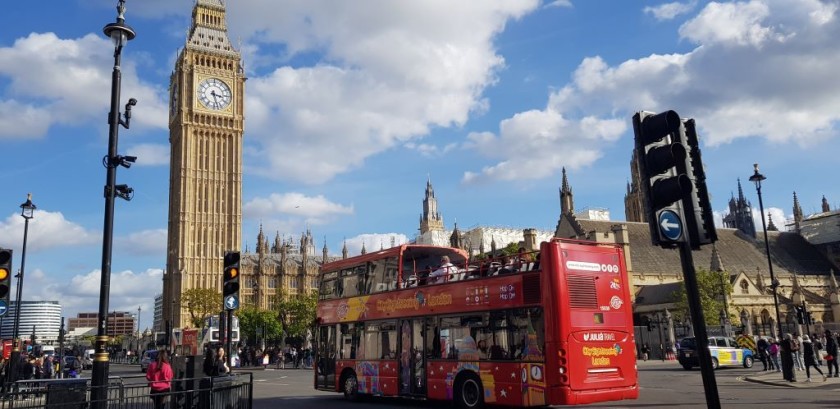
When heading to Westminster Abbey and the area around the Houses of Parliament from London Bridge, either take the northbound Jubilee line direct to Westminster, or if you would rather avoid ‘the tube’, take a train to Charing Cross from platforms 8 or 9.
Head out of the Villiers Street exit at Charing Cross and turn left towards Embankment station, walk through the station until you’re on the river bank and then go right; the walking time will be 10 to 15 minutes.
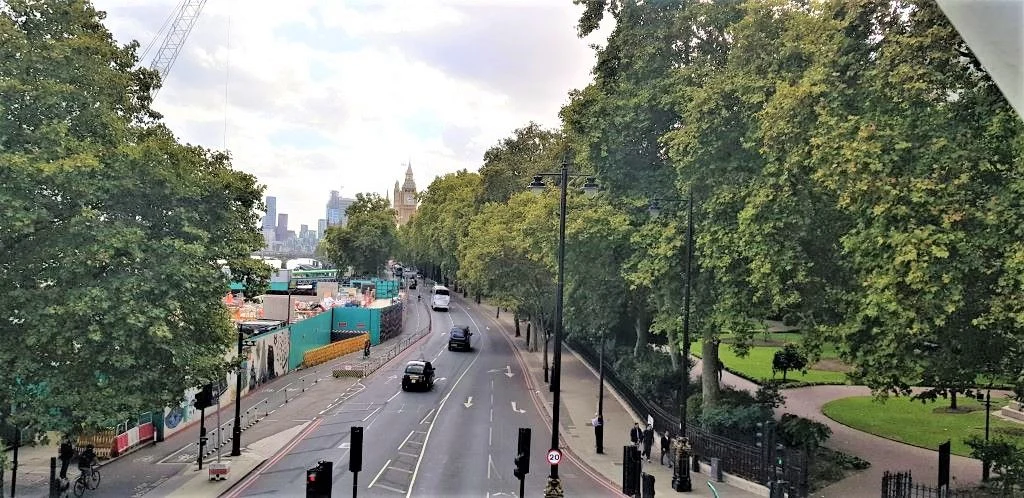
The image above was taken from just above Embankment station and shows the Elizabeth Tower in the distance.
to the Covent Garden area and The London Transport Museum
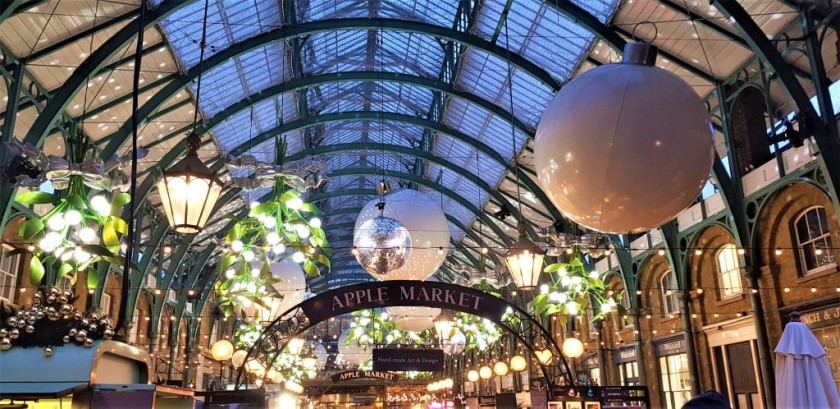
The Covent Garden area, which is where the London Transport Museum is located, is within 7 - 10 minutes walk from Charing Cross station.
So if your train to London Bridge won't be terminating there you can make the simple connection in London Bridge station, take any train from platforms 8 or 9 to Charing Cross.
to Buckingham Palace
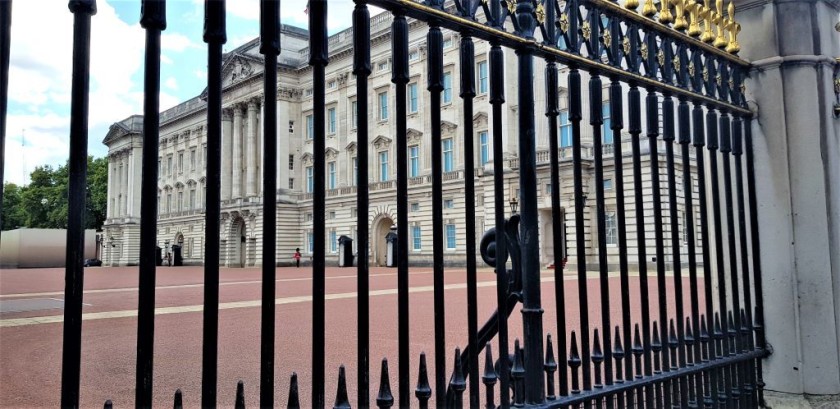
The entrance for the viewing of The State Rooms at Buckingham Palace is within a 15 - 20 minutes walk from Charing Cross station; it's at the other end of The Mall.
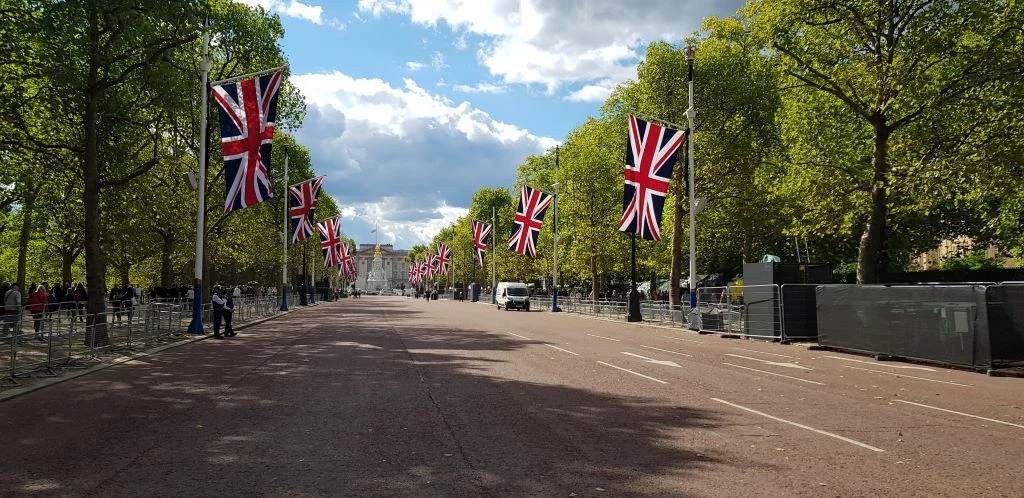
So if your train to London Bridge won't be terminating there you can make the simple connection in London Bridge station, take any train from platforms 8 or 9 to Charing Cross.
Though Green Park underground station is around 5 minutes walk closer, and it can be reached from London Bridge direct on the northbound Jubilee line.
Unusually for a central London underground station, step-free access by a series of lifts (elevators) between train and street is available at Green Park; and London Bridge underground station is also fully accessible.
to Wembley Stadium
Take any northbound Jubilee train to Wembley Park or, as these trains are likely to be very busy on event days, the alternative is:
Connect at Baker Steet for a simple as can be connection into the northbound Bakerloo line to Marylebone station and transfer there into trains to Wembley Stadium station, which lives up to its name with a convenient location.
Though it can worth checking the location of seats and the access route to them, because Wembley Park is on the north side of the stadium and the Stadium station is to the south.
to Tate Britain
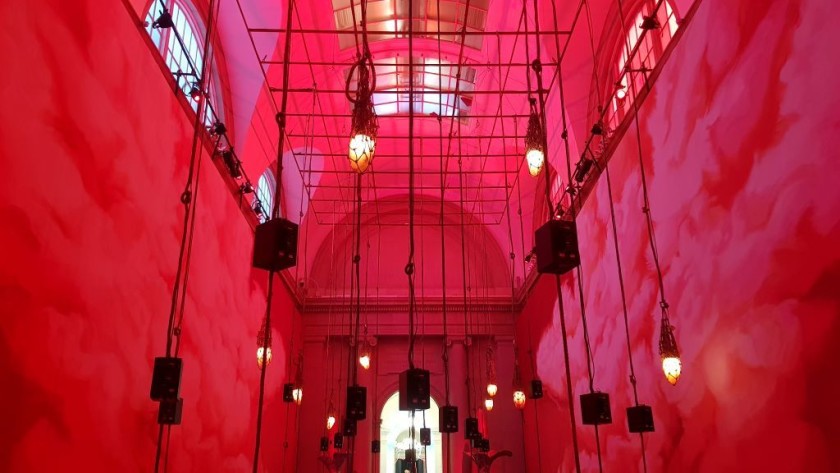
There are two optimum routes to Tate Britain from London Bridge
(1) take the Thames Clipper boat service from London Bridge City pier to the Millbank pier.
(2) or take any train from platforms 8 or 9 to Charing Cross and then bus routes 87 or 88 from stop N on Whitehall.
to Tate Modern
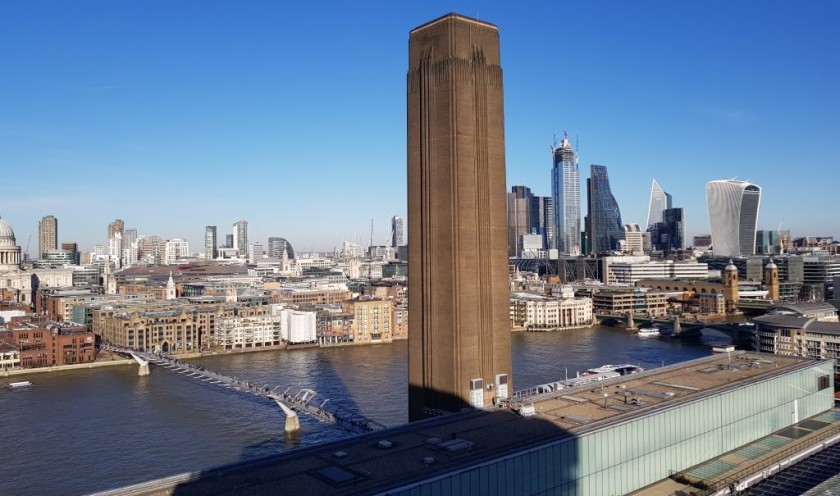
There are two optimal routes for making the transfer to Tate Modern from London Bridge station:
(1) It’s a lovely 15 – 25 min walk through Borough Market and then along the south bank of The Thames, or
(2) take bus 381 from Stop S by the Tooley Street exit and leave it at the Lavington Street stop.
to Somerset House
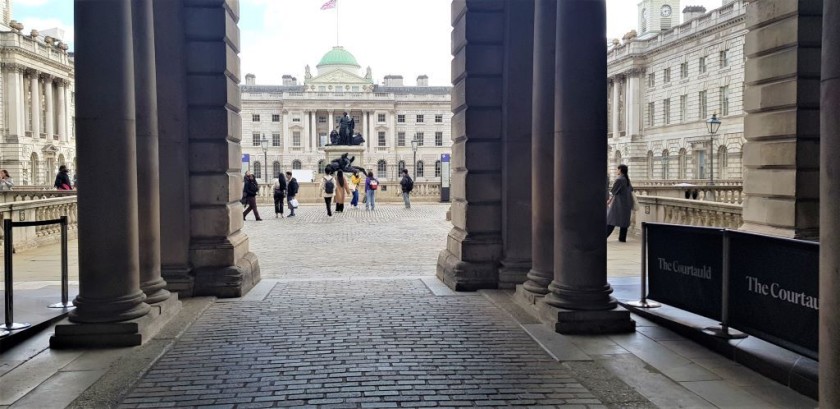
Somerset House is within 10 - 15 minutes walk from Charing Cross station, turn right from the front of the station and walk along The Strand.
So if your train to London Bridge won't be terminating there you can make the simple connection in London Bridge station, take any train from platforms 8 or 9 to Charing Cross.
to St Paul's
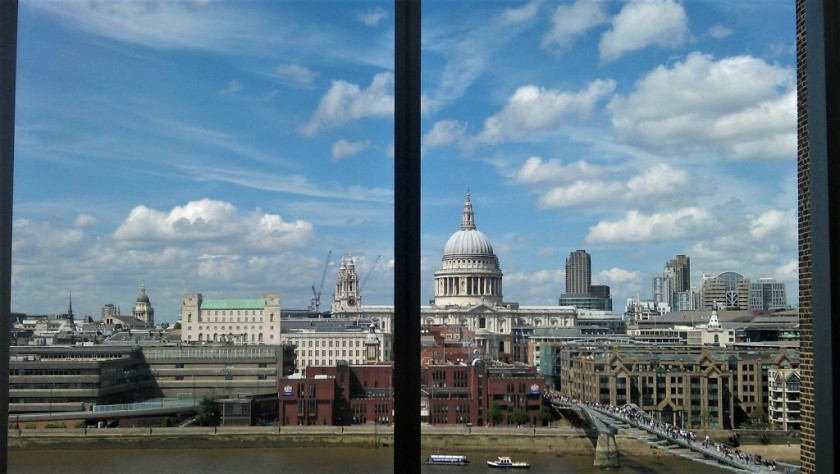
The easiest option for accessing St Paul's cathedral from London Bridge varies according to the days of the week.
Monday to Saturday
Take a Thameslink train from platforms 4 and 5 to City Thameslink, board into the rear of the train for easy access to the exit on Ludgate Hill.
The advantage of the route is that the walk from Ludgate Hill leads up to the front of the cathedral, where its main entrance is located.
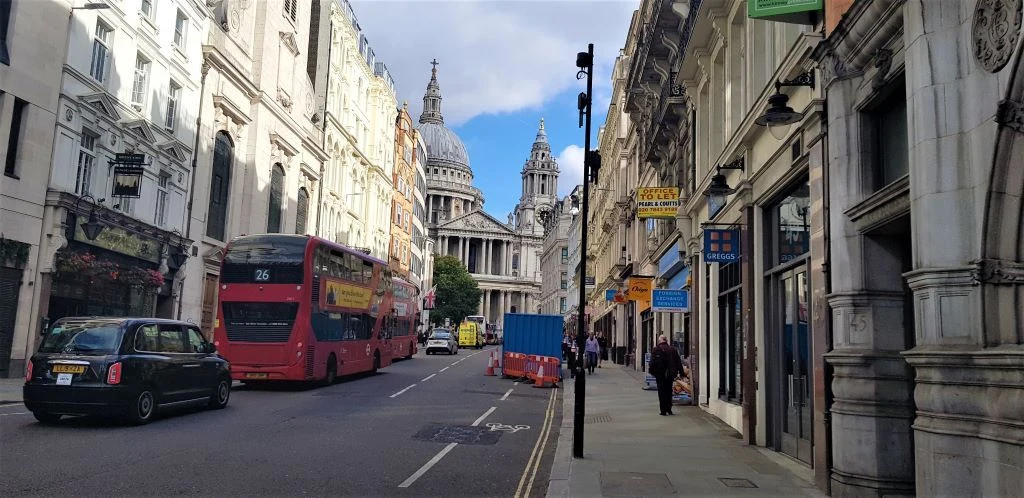
Also lifts (elevators) are available to from the trains at both Thameslink stations.
Sunday
City Thameslink station is only open from Monday to Saturday so on a Sunday take bus route 17 from stop D, which is over to the left when exiting the upper concourse; leave the bus at the St Paul's stop.
to Kensington Palace
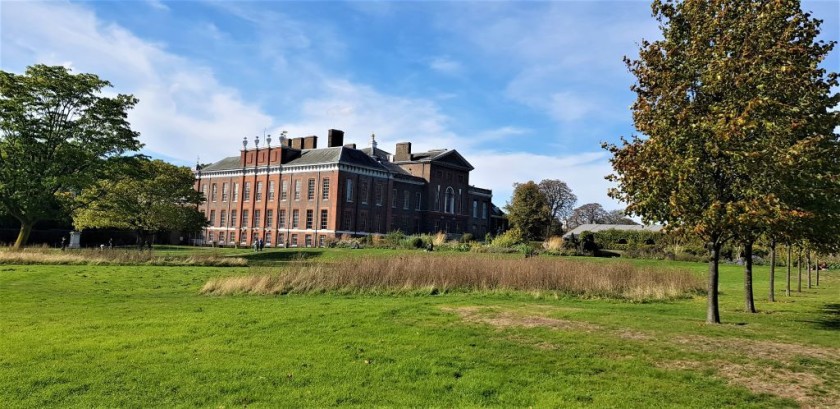
Kensington Palace is on the opposite side of the city center from London Bridge, but it's an uncomplicated journey.
(1) The quickest route is the northbound Jubilee line to Bond Street, and then connect there for the westbound Central line to Queensway station, or
(2) avoid ‘the tube’ by taking any train from platform 8 or 9 to Charing Cross and from the bus stop in front of the station, take bus route 9.
to Kew Gardens
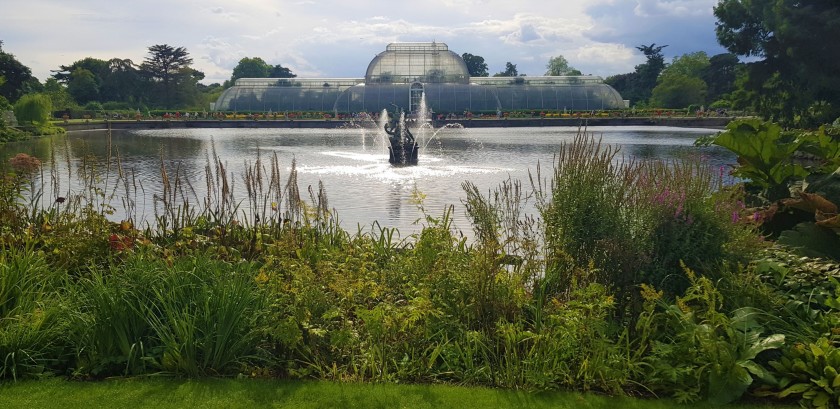
The Royal Botanic Gardens at Kew is some distance from London Bridge station, but it's a relatively straightforward three stage journey.
- take any train to Waterloo East from platform 8 or 9; if you won't be on a train heading to Charing Cross
- From Waterloo East use the footbridge connection for a step-free transfer into the main Waterloo station, and board any train to Richmond.
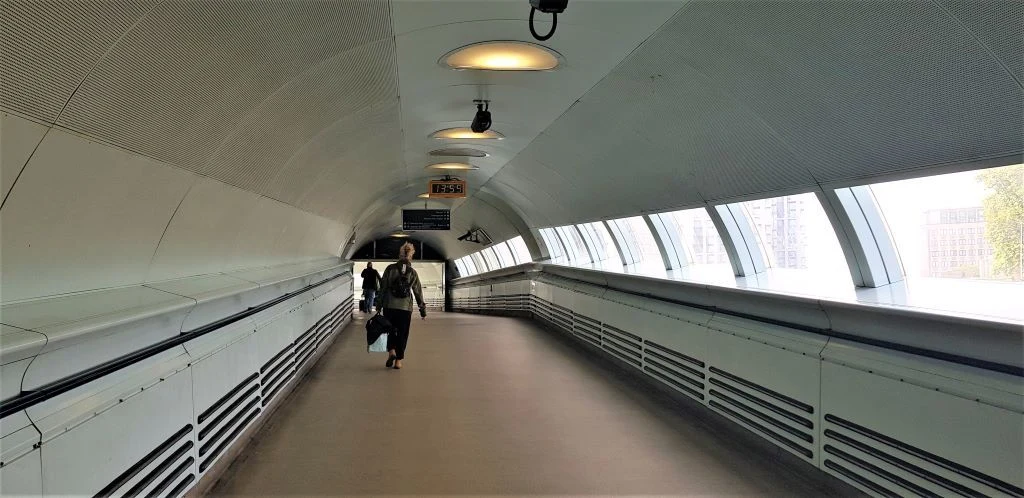
- In Richmond station a step-free transfer is available into a District line or Overground train for a one-station hop to Kew Gardens station.
Summary of how the ticketing works
All of the ticket gates at central London stations have 'readers' which enable contactless payment.
Regardless of whether you are resident in the UK, or are visiting, there are three methods of using Contactless:
- A payment app on a mobile device, including your bank's contactless payment app, or the likes of Google Pay, Apple Pay, or Samsung Pay.
- A debit / credit card as long as it has the contactless symbol
- An Oyster card (you touch in and out as you do when using Contactless).
Good to know about using Contactless
- The system works by touching in and out.
- When using bank cards, take care to use the same card when touching out at the end of a journey, as you did when touching in at the start.
- You have to pay with Contactless on the regular red buses, you cannot pay with cash.
- When travelling by the Underground or Elizabeth line, you can save 10 - 20p per journey by paying with a banking app / card instead of an Oyster card.
- Making a Contactless payment is cheaper than buying a ticket from a station counter or machine - the price difference is usually at least 50%!
More info is available on the general London by train guide.
Using rail tickets to obtain 2-for-1 entry to visitor attractions:
National Rail, which has overall responsibility for how the trains are managed in Britain, has teamed up with a swathe of tourist attractions for a promotion which allows two entry tickets for the price of one when travelling to and from them by train.
How it typically works is:
- You can look for which attractions and guided tours are members of the scheme on the National Rail website.
- Having chosen an attraction you can then see how to book the special promotional tickets or voucher; when needed you can find promo codes on the dedicated page for each attraction on the National Rail Website.
- On the online booking page of the attraction you should see an option which corresponds to 'National Rail - Two for One offer'.
- Book your attraction tickets or voucher.
- On arrival at the attraction you present your attraction tickets and rail tickets to gain entry.
The offers are available to visitors to the UK as well as residents, so they can be a great way to save money when on a holiday.
Though what's good to know is:
- You need to present either the outward or return part of a national rail ticket to gain entry, along with your attraction tickets; So Oyster Cards and other Contactless payments, or Travelcards can't be used for the rail journey!
- The ticket machines at stations will retain one-way tickets, hence return tickets are a must - and if possible avoid putting your outward tickets through the machine, by asking the staff to open the gates/barriers.
- The two people entering the attraction on the 2-for-1 offer will both need separate rail tickets.
- The type of rail ticket, how much you paid for it and the distance travelled all don't matter, any pair of return rail tickets will suffice.
- If you have one, you can use Railcards to book the rail tickets.
- Rail tickets are available as an alternative to Oyster cards when travelling between any two National Rail stations in the Greater London area; a National Rail station is any station not solely served by the Underground or DLR, so it includes stations solely served by the Overground or Elizabeth Line trains.
Therefore you can buy return rail tickets to a central London station, or to a station located by an attraction, from another station in the London area.
However before booking the 2-for-1 offers on the attraction websites, carefully check how much you will be saving by only paying one entrance fee, compared to the costs of booking two rail tickets.
If you look up the journey on the National Rail website you'll get a good idea of the train ticket costs.
It's likely you won't be able to claim a refund on the attraction tickets, if you then decide not to go ahead, because the rail tickets + the 2-for-1 offer won't save you money.
Though it's highly likely you will make a substantial overall saving.
But if you have already booked two return rail tickets and then find an attraction(s) that you want to visit, go ahead and book the 2-for-1 offer, as you'll then be certain of saving money!
Where can you go and what can you see
The full list of tourist attractions participating in the scheme can be found on the National Rail website.
Popular attractions in central London include:
- Westminster Abbey
- St Paul's cathedral
- the London Transport Museum
- The London Eye
- The Tower Of London (certain times of year only)
Attractions in the wider London area, with easy access from local rail stations, include:
Attractions which are an easy day trip from London include:
- The Bluebell Railway; very easy connection at East Grinstead station.
- Steam - The Museum of the Great Western Railway
- There's a clutch of attractions in Brighton including:
the charming Toy and Model Museum and The Royal Pavilion and Sea Life Brighton - Chessington World Of Adventures which is walkable from Chessington South station, which has trains from London Waterloo.
- Thorpe Park which can be accessed by taking a train from London Waterloo to Staines and then connecting into a bus service.
- Legoland Windsor which can be accessed by taking buses from central Windsor that offer straightforward connections with trains from London Paddington and trains from London Waterloo.
Though carefully check the full details for the amusement park offers as they exclude certain dates and periods of time, which tend to coincide with school holidays.

Simon Harper
I wanted to share my passion for train travel and explain how anyone can take the fantastic journeys I have taken.

This is one of more than 100 train travel guides available on ShowMeTheJourney, which will make it easier to take the train journeys you want or need to make. As always, all images were captured on trips taken by ShowMeTheJourney.
This second version of ShowMeTheJourney is exciting and new, so we are genuinely thrilled that you are here and reading this, but we also need your help.
We’re striving not to let anything get in the way of providing the most useful service possible, hence a facility has been set up with DonorBox which can be used to support the running costs and make improvements.
Instead of advertising or paywalls, your financial support will make a positive difference to delivering an enhanced service, as there’s a lot of ideas which we want to make happen.
So if you have found the info provided here to be useful, please consider saying thank you.




